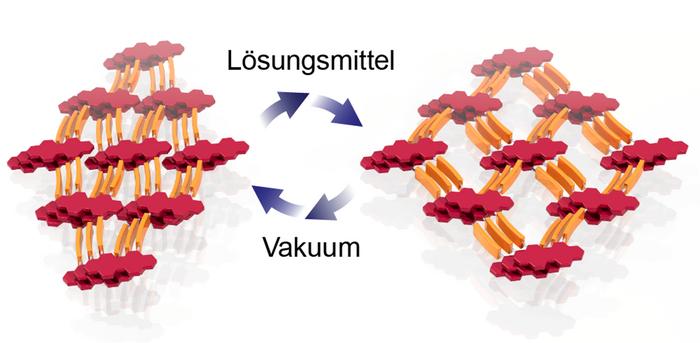Porous covalent organic frameworks (COFs) are a class of highly ordered materials composed of organic molecules linked by covalent bonds to create a network allowing for the precise construction of functional materials. Like metal organic frameworks (MOFs), discovered 25 years ago and now commercially viable, COFs offer promising structural, optical, and electronic properties for various applications, including gas and liquid storage, catalysis, sensor technology, and energy.

CREDIT: Florian Auras
Previous COF research primarily focused on creating rigid frameworks with static properties. Dr. Florian Auras and his team at the Chair of Molecular Functional Materials at TUD have developed dynamic two-dimensional COFs that can control pore opening and closing, similar to a sponge.”The main aim of the study was to equip these frameworks, which are normally very precisely ordered but rigid, with exactly the right degree of flexibility so that their structure can be switched from compact to porous. By adding solvent to the molecular sponge, we can now temporarily and reversibly change the local geometry as well as optical properties such as colour or fluorescence,” says Florian Auras, explaining his research approach.
This ability to switch structural and optoelectronic properties makes these materials particularly intriguing for future electronics and information technology applications. “Our research results form the basis for our further research into stimuli-responsive polymers, particularly with the aim of realising switchable quantum states. When working on COFs, I am always fascinated by how precisely their properties can be manipulated by controlling the molecular structure,” adds Auras.

